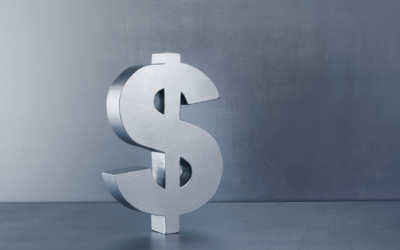
“Let’s explore just a few of the reasons why so many Americans continue to value homeownership.”
Buying a home is a powerful decision, and it remains a key part of the American Dream. In fact, the 2022 Consumer Insights Report from Mynd found the majority of people polled still view homeownership as a key life achievement. Let’s explore just a few of the reasons why so many Americans continue to value homeownership.
The Financial Benefits of Owning a Home
One possible reason homeownership is viewed so highly is because owning a home is a significant wealth-building tool, and it provides meaningful financial stability over renting by locking in your monthly housing payments for the length of your home loan. An article from Forbes explains:
“Understanding the potential benefits of homeownership helps individuals see the value of owning property instead of renting. . . . household wealth among homeowners is a whopping 1,469% higher on average compared to renters, excluding home equity, making the allure of homeownership even more enticing.”
Over time, owning a home not only helps boost your own net worth, but it also sets future generations up for success as you pass that wealth down. That may be why the Mynd report also says:
“Most Americans (78%) still associate homeownership with the ‘American dream.’ And nearly two-thirds of Americans (65%) see homeownership as a means of building intergenerational wealth.”
The Non-Financial Benefits of Homeownership
While the financial benefits of owning a home are important, becoming a homeowner impacts you on a social and emotional level, too. As Mark Fleming, Chief Economist for First American, says:
“. . . buying a home is not just a financial decision. It’s also a lifestyle decision.”
Your home provides feelings of achievement, responsibility, and more. 3by30 highlights the top 10 benefits homeowners enjoy. A few non-financial advantages include:
- Providing you with more freedom and control over your living space
- Giving you a greater sense of pride
- Helps with community engagement
What Does That Mean for You?
If your definition of the American Dream involves greater freedom and prosperity, then homeownership could play a major role in helping you achieve that dream. While it may feel challenging to buy a home today as mortgage rates and home prices rise, if the time is right for you, know that there are incredible benefits waiting for you at the end of your journey. You’ll have a place you can grow your wealth, call your own, and feel most comfortable.
Like the National Association of Realtors (NAR) says:
“. . . research has consistently shown that homeownership is also associated with multiple economic and social benefits to individual homeowners. Homeownership has always been an important way to build wealth.”
Bottom Line
Buying a home is a powerful decision and a key part of the long-term dream for many Americans. And if homeownership is part of your dreams this year, let’s connect to start the process today.
To view original article, visit Keeping Current Matters.
The Latest 2024 Housing Market Forecast
The housing market is expected to be more active in 2024 and that may be in part because there will always be people whose lives change and need to move.
Thinking About Using Your 401(k) To Buy a Home?
Before you decide to dip into your retirement to buy a home, be sure to consider all possible alternatives and talk with a financial expert.
Homeowner Net Worth Has Skyrocketed
Buying a home can be a great way to grow your net worth, since home values have a tendency to rise over time, meaning you have more equity.
Reasons To Sell Your House Before the New Year
Selling now, while other homeowners may hold off until after the holidays, can help you get a leg up on your competition.
Don’t Believe Everything You Read About Home Prices
If you believe home prices are falling, it may be time to get your insights from the experts, and they’re saying prices are climbing.
Foreclosures and Bankruptcies Won’t Crash the Housing Market
Foreclosure filings are inching back up to pre-pandemic numbers, BUT they’re still way lower than when the housing market crashed in 2008.





